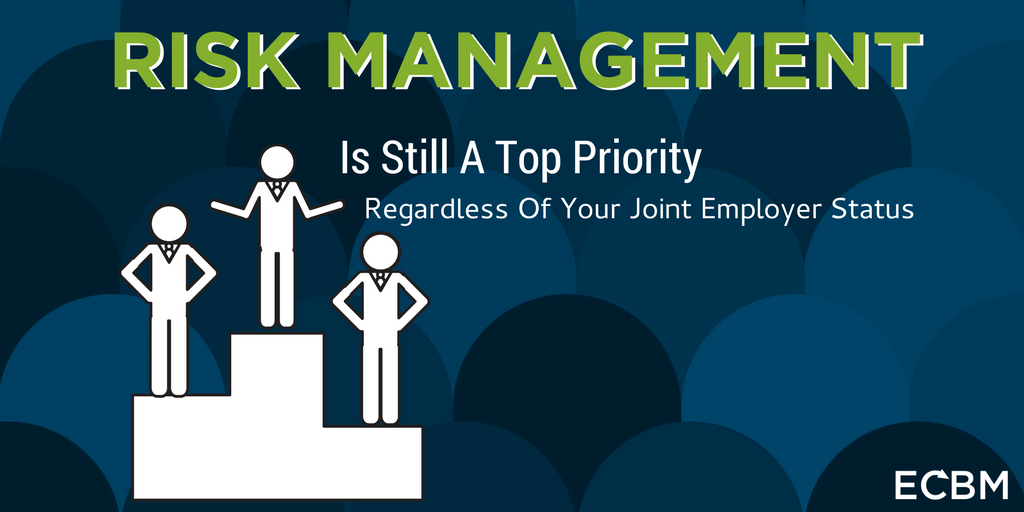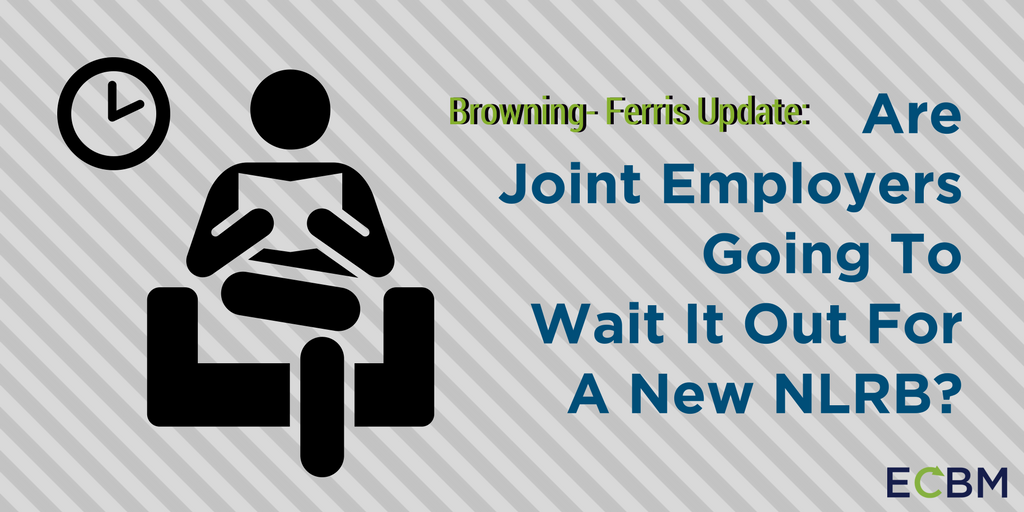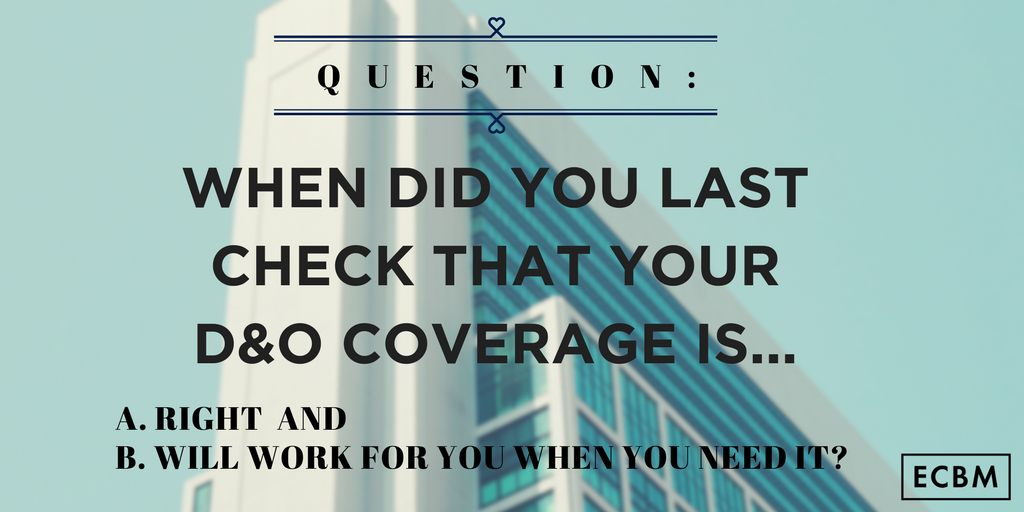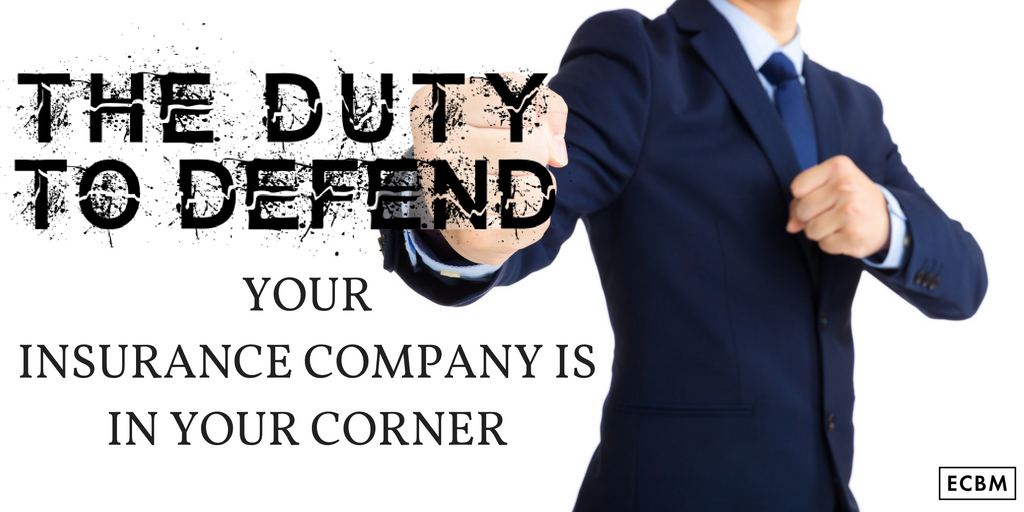The Importance of Being Aligned With Your Insurance Company
Insurance litigation can put commercial businesses in a number of complicated binds. Often times, the interests of the policyholder and the insurance company providing their defense do not ... READ MORE
Posted by ecbmadmin
Are Joint Employers Going To Wait It Out For A New NLRB?
August 2016, the National Labor Relations Board issued its decision in the Browning-Ferris case. That decision significantly revised the National Labor Relations Board test for determining ... READ MORE
Posted by ecbmadmin
The Importance of Frenquently Reviewing Your D&O Coverage
Directors and Officers Liability policies traditionally targeted public corporations. These corporations began to face a large increase in the number of shareholder derivative lawsuits in ... READ MORE
Posted by Shane Moran
The Duty To Defend: Your Insurance Company Is In Your Corner
When people traditionally think of insurance loss payouts, they think of indemnity - claims paid out for damage suffered by property or people. Yet commercial liability policies include two ... READ MORE
Posted by ecbmadmin





